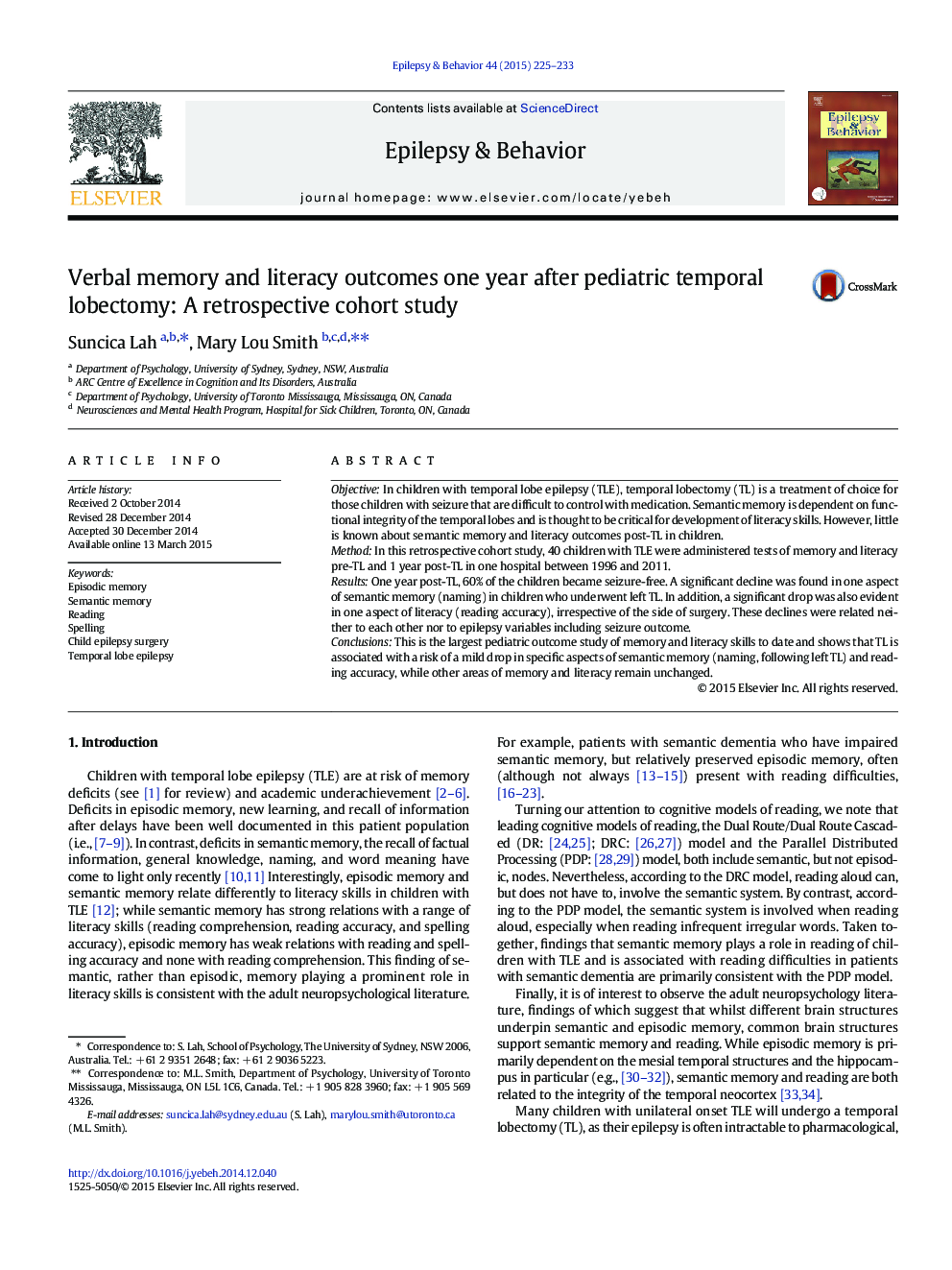| Article ID | Journal | Published Year | Pages | File Type |
|---|---|---|---|---|
| 6011536 | Epilepsy & Behavior | 2015 | 9 Pages |
â¢We examined memory and literacy outcomes post-TL in 40 children.â¢Episodic memory, vocabulary, reading comprehension, and spelling remained unchanged.â¢A significant decline was found in “naming” (an aspect of semantic memory) post-left TL.â¢Reading accuracy dropped, irrespective of the side of surgery.â¢Memory and literacy outcomes were not related to postsurgical seizure outcome.
ObjectiveIn children with temporal lobe epilepsy (TLE), temporal lobectomy (TL) is a treatment of choice for those children with seizure that are difficult to control with medication. Semantic memory is dependent on functional integrity of the temporal lobes and is thought to be critical for development of literacy skills. However, little is known about semantic memory and literacy outcomes post-TL in children.MethodIn this retrospective cohort study, 40 children with TLE were administered tests of memory and literacy pre-TL and 1Â year post-TL in one hospital between 1996 and 2011.ResultsOne year post-TL, 60% of the children became seizure-free. A significant decline was found in one aspect of semantic memory (naming) in children who underwent left TL. In addition, a significant drop was also evident in one aspect of literacy (reading accuracy), irrespective of the side of surgery. These declines were related neither to each other nor to epilepsy variables including seizure outcome.ConclusionsThis is the largest pediatric outcome study of memory and literacy skills to date and shows that TL is associated with a risk of a mild drop in specific aspects of semantic memory (naming, following left TL) and reading accuracy, while other areas of memory and literacy remain unchanged.
